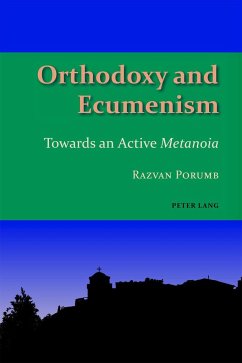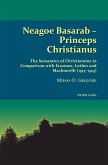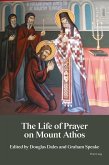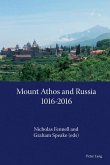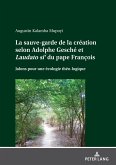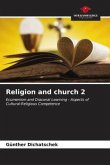This book explores the relationship between the Orthodox tradition and the ecumenical practice of engagement with other Christian traditions. This relationship has for a long time been compromised by an underlying tension, as the Orthodox have chosen to participate in ecumenical encounters while - often at the same time - denouncing the ecumenical movement as deficient and illegitimate. The author perceives this relationship to be even more inconsistent since the core of Orthodoxy as professed by the Orthodox is precisely that of re-establishing the unity and catholicity of the Church of Christ. This vision informs Orthodox identity as essentially a Church of exploration, of engagement and dialogue, a Church committed to drive all other traditions, but also itself back to the "right" primordial faith. The book exposes the risk of Orthodox theology turning into an oppositional picture of Orthodoxy as necessarily opposed to a heterodox antipode, rather than being the continuous dynamic reality of the living Church of Christ. The author proposes the rediscovery of a set of paradigms in an ethos of humble, active metanoia that would enable a more plenary ecumenical operation for the Orthodox as well as a renewed awareness of their own spirituality.
«This is a sensitive, erudite and original essay on Orthodox attitudes to ecumenism. It deals very thoroughly with many of the contemporary anxieties expressed by the Orthodox about ecumenical involvement and offers a fresh and very rich theological perspective, deeply rooted in recent Eastern Christian thought (not least the theology of the great Fr Dumitru Staniloae), opening up new possibilities for understanding ecumenical dialogue without relativising or sacrificing fundamental commitments. It is a welcome and creative contribution to both ecumenical and Orthodox theology.» (The Rt Revd Dr Rowan Williams, Magdalene College, Cambridge University, Former Archbishop of Canterbury)
«This is an invaluable resource for anyone wishing to better understand - from the inside - Orthodox theological tensions around ecumenism. But the book moves well beyond old stalemates. Razvan Porumb proposes that all Churches see themselves as part of a 'consubstantial humanity,' engaged with each other in all their diversity and journeying together on a transformational path toward theosis. A refreshing and hopeful vision of what the movement toward Christian unity could be.» (The Very Revd Dr John A. Jillions, St Vladimir's Orthodox Theological Seminary, Former Chancellor, Orthodox Church in America)
«This is an invaluable resource for anyone wishing to better understand - from the inside - Orthodox theological tensions around ecumenism. But the book moves well beyond old stalemates. Razvan Porumb proposes that all Churches see themselves as part of a 'consubstantial humanity,' engaged with each other in all their diversity and journeying together on a transformational path toward theosis. A refreshing and hopeful vision of what the movement toward Christian unity could be.» (The Very Revd Dr John A. Jillions, St Vladimir's Orthodox Theological Seminary, Former Chancellor, Orthodox Church in America)

